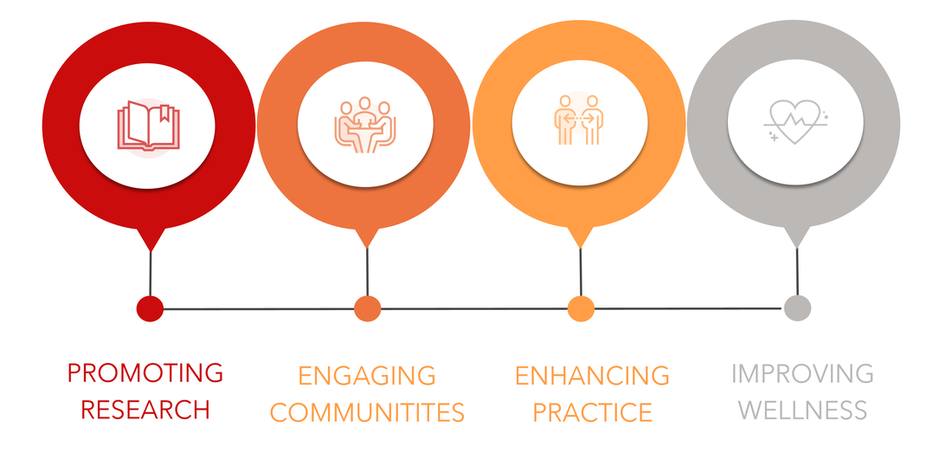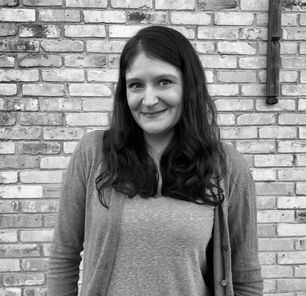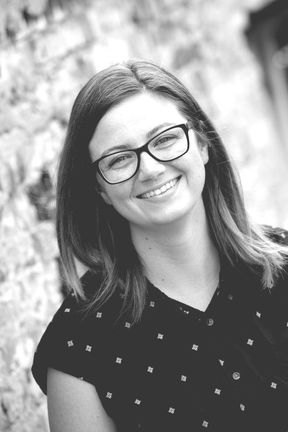|
Wisconsin CONNECT is a collaborative. It seeks to provide technical assistance and training opportunities for substance use prevention and treatment grantees, providers, clinicians, social workers, and support staff; drawing on local and national academic and community resources.
|
We do this to further reduce and prevent substance use in Wisconsin.
We do this in partnership among Wisconsin Department of Health Services (Division of Care and Treatment Services, Bureau of Prevention, Treatment and Recovery); UW-Milwaukee, and our network of training providers. |
What We Do
We partner with local, regional and national experts to meet your training needs. We do this in a variety of ways.
|
Mission
Vision
Overarching Goals
|
To provide a platform and opportunities for advancing collaborative and innovative behavioral health education, capacity training, peer-to-peer learning, and evaluation to professionals working in the substance use disorders field.
The substance use prevention, treatment and recovery workforce provides quality, holistic services to Wisconsin residents.
|
Our Approach
With our training partners, we aim to help you and your organization "connect the dots" from research to improved health and wellness for your communities. We aim to promote new research and best practices in engaging communities and enhancing your substance use prevention and treatment practices. We aim to reduce and prevent substance use in Wisconsin and improve the health and wellness of our communities.
Who We Are
|
Elizabeth A Duthie, PhD
Associate Researcher, Center for Urban Population Health, University of Wisconsin Milwaukee Elizabeth Duthie is a healthcare researcher with experience in the design, conduct, analysis, and dissemination of research related to population health, healthcare, and patient outcomes in both clinical and community settings. Her research skills cover qualitative methods, including conducting and analyzing interviews and focus groups, as well as quantitative methods, including designing and administering surveys and managing and analyzing resultant data. She also has experience with grant-writing, reviewing research literature, and communicating research findings in written reports/manuscripts and in conference presentations at the local and national level. Elizabeth holds a bachelor’s degree from St. Olaf College and master’s degree from New York University. She completed her doctorate in Public and Community Health at the Medical College of Wisconsin. Curriculum Vitae |
|
David Frazer, MPH
Director, University of Wisconsin School of Medicine and Public Health Mr. Frazer supports overall management, administrative, communication and engagement of the Center. He provides day-to-day support for Center academic and administrative staff, across the three institutions. In addition, Mr. Frazer leads the expansion and sustainment of community partnerships and coordinating community-based research and initiatives. He facilitates collaborative, equitable involvement of the community in local research and is the link between the community at large and the Center. Mr. Frazer has experience in creating environments where community and academic partners can digest evidence and adapt what works into local solutions. He supports and provides a menu of approaches to engage with community or academia depending on the stage of research or program development. David received his Master of Public Health from Tulane University's School of Public Health and Tropical Medicine, his focus of study included program management and evaluation. He has worked in public health for 18 years and his experience ranges from forging grassroots community based organization collaborations to providing technical assistance to World Health Organization. Curriculum Vitae |
|
Bernestine Jeffers
SUD Project Strategist UWM Office of Research Center for Urban Population Health 1020 N 12th St Suite 4180 Milwaukee, WI 262-993-5076 © www.cuph.org [email protected] “Promoting Best Practice in SUD Training and Technical Assistance” |
Bernestine Jeffers
Substance Use Disorder Project Strategist Center for Urban Population Health, University of Wisconsin Milwaukee As a project and program coordinator Bernestine Jeffers joined CUPH in 2020 to development educational and capacity training strategies, opportunities and resources for community, academic and governmental organizations, substance use disorder (SUD) workforces. The 30 years’ experience in behavioral health and health care policy, coordination and administration encompass the areas of primary care, ob/gyn, and perinatology, cardiology and mental health/substance use disorders, with a primary focus on women’s health. During her career, with the Wisconsin Department of Health Services, she maintained and implemented state policies and standards related to gender-specific and family-centered SUD treatment, prevention and recovery; provided technical assistance, consultation and training to staff and grantees; lead the development of a human services’ leadership empowerment institute for diverse groups and underserved populations. Her work, prior to joining DHS included leading a change initiative for the integration of gender specific, culturally responsive, co-occurring mental health & substance use services, and successfully managing health care projects for local and national organizations. Bernestine has served as a member of National Association of State Alcohol and Drug Abuse Directors, Inc.(NASADAD)’s Women’s Services Network; the Milwaukee Health Care Partnership’s Behavioral steering committee; a content expert, contributor and presenter for HHS’ Office on Women’s Health (OWH) and SAMHSA’s region 5 Workforce Development Initiative. A life-long resident of Wisconsin, Bernestine, attended Cardinal Stitch University and UWM. She is a 2006 graduate of the Great Lakes Addiction Technology Transfer Center’s Leadership Institute & the Graduate school of USDA’s Center for leadership and management programs; In 2014, she completed the CSAP Prevention Specialist training as a (CPS-IT) and in 2015 the Recovery Oriented System of Care (ROSC) Institute. In 2017, Bernestine received her Lean Six Sigma Yellow Belt certification from the UW-Madison’s Center for Professional and Executive Development. The Wisconsin Women’s Health Foundations honored Bernestine, in 2016, as one of seven Champions in Women’s Health. |
|
Cora Knight
Event Coordinator Center for Urban Population Health, University of Wisconsin-Milwaukee Ms. Knight helps to plan and facilitate trainings and other events hosted by the Center for Urban Population Health and Wisconsin CONNECT. She also assists in administrative functions. Ms. Knight holds a Bachelor’s degree from Butler University. She has been with this organization since May 2022. |
|
Carrie Stehman, MA
Senior Research Specialist, University of Wisconsin School of Medicine and Public Health Ms. Stehman supports several evaluation projects at the Center for Urban Population Health through data collection and management, qualitative and quantitative analyses, and report writing. Ms. Stehman holds Bachelor’s degrees from UW-Madison and UW-Milwaukee and a Master of Arts in Women’s Studies from UW-Milwaukee. Most of her work has focused on the health of women, children, and families. |
Our Partners
|
Wisconsin Association for Perinatal Care
WAPC was formed to create and manage a system of regionalized perinatal care. WAPC has evolved to meet the growing and changing needs of individuals and providers during the perinatal period. That period is defined as the time around childbirth, including the three months before pregnancy and one year after birth. Formed in 1970, WAPC is one of the oldest perinatal associations in the country. https://www.perinatalweb.org/ |











